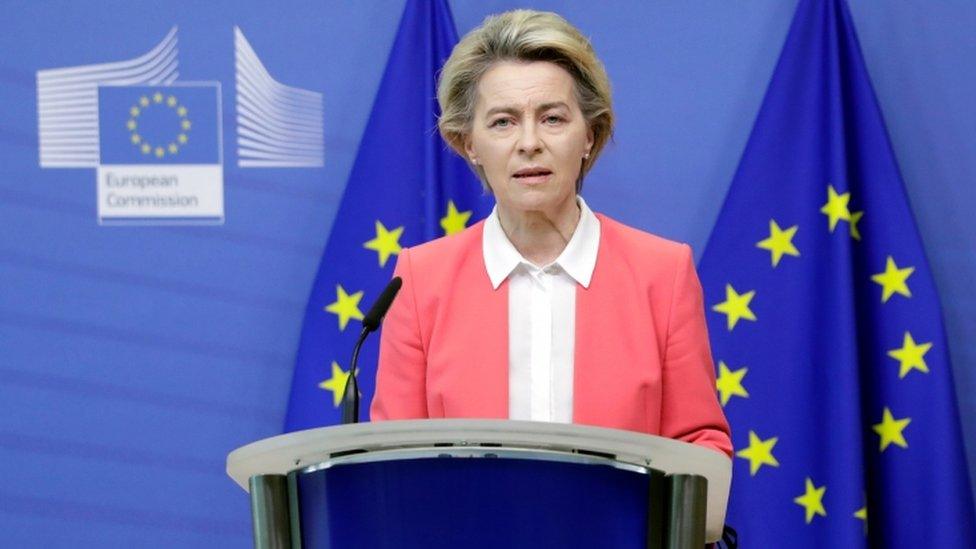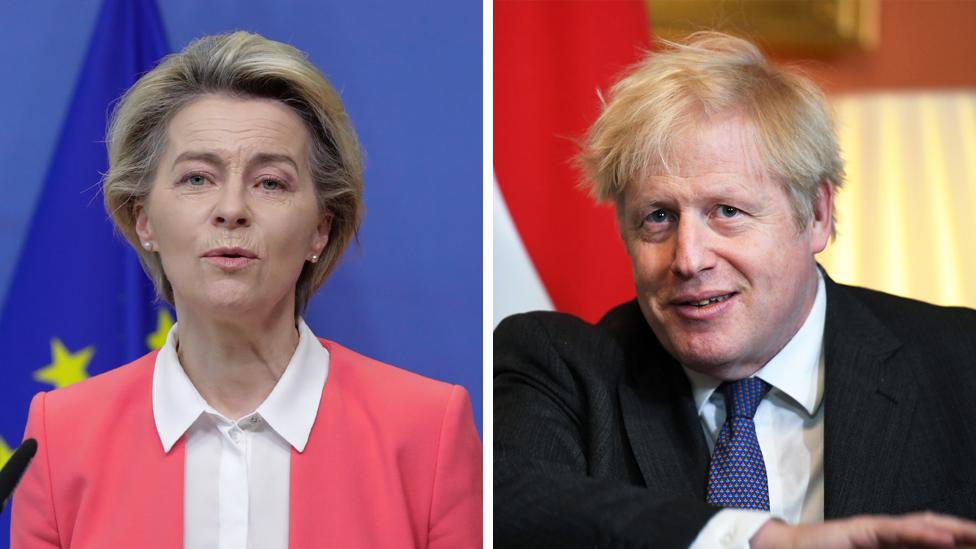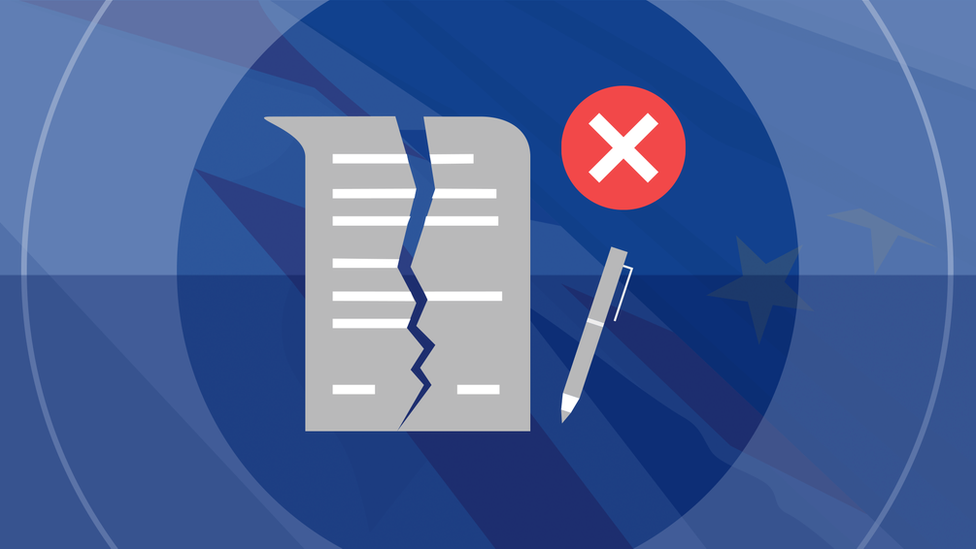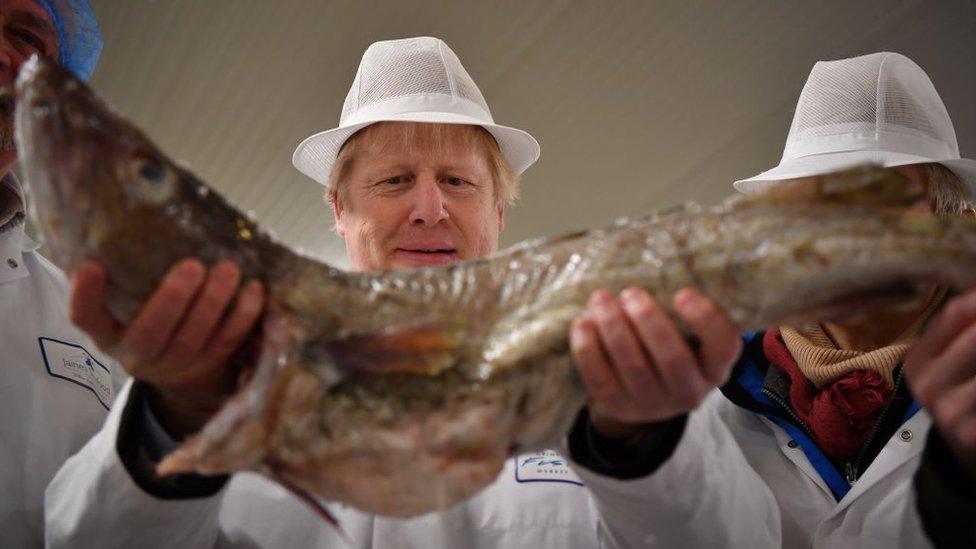Brexit: Tentative progress made as EU hints at concessions
- Published
Johnson: 'Whatever happens, the UK will do very, very well'
What does it mean in Brexit trade deal terms "to go the extra mile"?
That's the distance the UK Prime Minister, Boris Johnson, and the European Commission chief, Ursula von der Leyen, have promised to travel over the next days.
But will the road take them to deal or no-deal? And who will compromise on what to get there?
EU contacts close to the talks say both sides are being constructive. They insist negotiations aren't simply continuing because neither the EU, nor the government want to be blamed in a no-deal scenario and prefer not to walk away first.
"We're carrying on talking because no-deal is a big deal," one EU contact told me. "We think it will have a dramatic impact on lives and livelihoods. As long as talks aren't going backwards, it would be irresponsible not to give this a chance."

Boris Johnson and Ursula von der Leyen said it was "responsible at this point to go the extra mile"
The now-infamous three main sticking points are still open, with tentative progress being made, we hear.
We understand:
1) On fishing rights, EU whispers suggest a kick-the-can, down-the-road fudged compromise might be found (though not settled yet), involving considerable European concessions
2) The governance of the overall deal is being worked on in detail. Still to be agreed: what actions could be slapped with which sanctions, and who decides
3) Competition regulations - aka the level playing field - are still a big issue
Alongside technical talks, both sides say political intervention will certainly still be needed.
So, what are we to make of the prime minister sounding a whole lot gloomier on Sunday about the prospects of a deal, than the European Commission, carrying out the negotiations on the EU's behalf?
Remember: what's said in front of the cameras is only part of the picture.
We aren't behind the scenes in the negotiating room or on the closed calls between Mr Johnson and Ms von der Leyen.
But however long these talks rumble on, ultimately neither the government, nor the EU, will sign up to a deal if they can't claim it as a victory.

The basics
Brexit happened but rules didn't change at once: The UK left the European Union on 31 January 2020, but leaders needed time to negotiate a deal for life afterwards - they got 11 months.
Talks are continuing: The UK and the EU have until 31 December 2020 to agree a trade deal as well as other things, such as fishing rights.
If there is no deal: Border checks and taxes will be introduced for goods travelling between the UK and the EU. But deal or no deal, we will still see changes.

For Mr Johnson, that means being able to say the deal respects post-Brexit national sovereignty; that it allows the UK to make and take its own decisions.
Brussels wants to be able to confidently reassure the 27 EU leaders that the deal protects the single market and European businesses in it from what they feared could be unfair UK competition.
If there is a deal, the EU assumption is that many in the UK will want to trumpet what one Brussels insider called "a Great British Victory" and to point to EU concessions, real or alleged.
"If that narrative helps get a deal over the line in the UK, then it's worth it," he shrugged. "Few Europeans are paying attention to the Brexit process anymore. We don't care about PR. We care about protecting our interests, deal or no-deal."
That last sentiment, of course, is one loudly expressed by the UK too.


- Published13 December 2020

- Published13 December 2020

- Published18 December 2020

